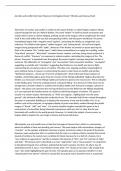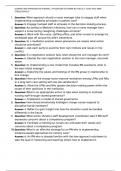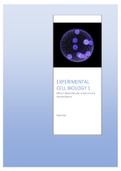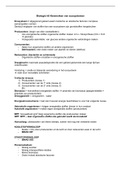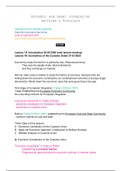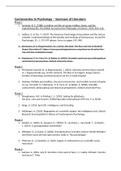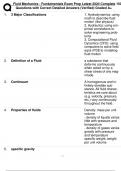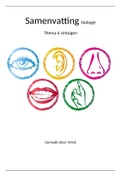Are War and Conflict the Main Themes in Ted Hughes Poetry? (Thistles and Famous Poet)
The theme of warfare and conflict is evident in the poem Thistles, in which Hughes explores Viking
culture through the lens of a field of thistles. The word "thistle" in itself has harsh consonants and
vowels which create an almost stinging, pricking sound on the tongue, which compliments the weed
itself. It has small spikes that can stab unsuspecting victims, and they grow relentlessly. The poem
immediately begins with a negative word "against", presenting the thistles as antagonistic and
malicious. The thistles work against "rubber tongues" and "hoeing hands", this soft and organic
imagery being juxtaposed with "spike", almost as if the thistles are swords or spears piercing the
flesh of its enemies. The "crackle open", which draws connotations to a raging fire crackling, under
"blue-black" pressure": "blue-black" connotes bruises, warfare, and navy, being clearly evident of a
theme of conflict. "Pressure" can represent a violent eruption, mimicking the imagery of fire. The
phrase "Everyone" is repeated twice throughout the poem, Hughes' message being that warfare is
universal. The alliteration of "revengeful" and "resurrection" feels somewhat relentless, "revengeful"
suggesting a vendetta and "relentless" suggesting the thistles (or man itself) was born to fight,
representing the circulatory nature of warfare. This idea of an ongoing vendetta, being fought for
years without rhyme or reason, is central along the poem’s main focus on conflict and warfare.
"Splintered weapons... thrust up// From the underground", these lethal and sharp weapons of
multiple, unrelenting spikes, grow from the remains of the Vikings battlefield. Hughes describes the
thistles as a microcosm of the Vikings' battle and warfare in general, the macrocosm. This is indicated
as the thistles grow "from the underground of a decayed Viking": it is almost as if they have rose to
avenge their comrade’s death, to continue this fruitless battle until "Everyone manages a plume of
blood". The plume can represent the marring of blood across the field from the Vikings bloodshed,
or it can represent the feather plume on a helmet, both being imagery of warfare. The poem is
circular in a certain respect, thematically, as "Their sons appear... fighting back over the same
ground", this obviously reflecting the continuity of war. This semantic field of war created throughout
the poem is somewhat belittling as is displays the monotony of war and the futility of it; it's an
endless cycle of loss and pain, an egregious display of gross masculinity, evident through the phallic
images of "thrust" "stiff" and "men". It is unclear whether Hughes intended this poem to be a
commentary of masculinity being inherently synonymous with war, but it is clear that he was
fascinated with conflict in the world general. However, it is hardly the subject of every poem, as
Hughes liked to explore the vast range of nature and human behaviour.
Alternatively, war and conflict are not the final message of Famous Poet, which is a commentary
about the pitfalls of fame and meeting your heroes. The poem begins with extraordinary imagery of
"monster", as the speaker anticipates someone of great, monstrous stature, the great of the greats.
However, upon seeing their idol, it is evident that the man is so ordinary that he exceeds the normal
bounds of ordinary; he cannot even constitute for bland, because he is a shell of a human. He is
"very ordinary in appearance" and fits in between the binaries of "thin" and "fat" and hair of "light
and dark". The famous poet is described as a mere "apprentice" and a "house painter" in comparison
to the glimmering job of an architect, stating that the poet’s passion, his drive, his allure, has all
diminished and he is now a "near finished variety artist". He "slumps in his chair// Like a badly hurt
man", this simile highlighting the pain of fame. The speaker goes on to question whether it is the
"dreg-boozed inner demon" which has caused this once great man’s downfall. Fame is a poisoned
The theme of warfare and conflict is evident in the poem Thistles, in which Hughes explores Viking
culture through the lens of a field of thistles. The word "thistle" in itself has harsh consonants and
vowels which create an almost stinging, pricking sound on the tongue, which compliments the weed
itself. It has small spikes that can stab unsuspecting victims, and they grow relentlessly. The poem
immediately begins with a negative word "against", presenting the thistles as antagonistic and
malicious. The thistles work against "rubber tongues" and "hoeing hands", this soft and organic
imagery being juxtaposed with "spike", almost as if the thistles are swords or spears piercing the
flesh of its enemies. The "crackle open", which draws connotations to a raging fire crackling, under
"blue-black" pressure": "blue-black" connotes bruises, warfare, and navy, being clearly evident of a
theme of conflict. "Pressure" can represent a violent eruption, mimicking the imagery of fire. The
phrase "Everyone" is repeated twice throughout the poem, Hughes' message being that warfare is
universal. The alliteration of "revengeful" and "resurrection" feels somewhat relentless, "revengeful"
suggesting a vendetta and "relentless" suggesting the thistles (or man itself) was born to fight,
representing the circulatory nature of warfare. This idea of an ongoing vendetta, being fought for
years without rhyme or reason, is central along the poem’s main focus on conflict and warfare.
"Splintered weapons... thrust up// From the underground", these lethal and sharp weapons of
multiple, unrelenting spikes, grow from the remains of the Vikings battlefield. Hughes describes the
thistles as a microcosm of the Vikings' battle and warfare in general, the macrocosm. This is indicated
as the thistles grow "from the underground of a decayed Viking": it is almost as if they have rose to
avenge their comrade’s death, to continue this fruitless battle until "Everyone manages a plume of
blood". The plume can represent the marring of blood across the field from the Vikings bloodshed,
or it can represent the feather plume on a helmet, both being imagery of warfare. The poem is
circular in a certain respect, thematically, as "Their sons appear... fighting back over the same
ground", this obviously reflecting the continuity of war. This semantic field of war created throughout
the poem is somewhat belittling as is displays the monotony of war and the futility of it; it's an
endless cycle of loss and pain, an egregious display of gross masculinity, evident through the phallic
images of "thrust" "stiff" and "men". It is unclear whether Hughes intended this poem to be a
commentary of masculinity being inherently synonymous with war, but it is clear that he was
fascinated with conflict in the world general. However, it is hardly the subject of every poem, as
Hughes liked to explore the vast range of nature and human behaviour.
Alternatively, war and conflict are not the final message of Famous Poet, which is a commentary
about the pitfalls of fame and meeting your heroes. The poem begins with extraordinary imagery of
"monster", as the speaker anticipates someone of great, monstrous stature, the great of the greats.
However, upon seeing their idol, it is evident that the man is so ordinary that he exceeds the normal
bounds of ordinary; he cannot even constitute for bland, because he is a shell of a human. He is
"very ordinary in appearance" and fits in between the binaries of "thin" and "fat" and hair of "light
and dark". The famous poet is described as a mere "apprentice" and a "house painter" in comparison
to the glimmering job of an architect, stating that the poet’s passion, his drive, his allure, has all
diminished and he is now a "near finished variety artist". He "slumps in his chair// Like a badly hurt
man", this simile highlighting the pain of fame. The speaker goes on to question whether it is the
"dreg-boozed inner demon" which has caused this once great man’s downfall. Fame is a poisoned


